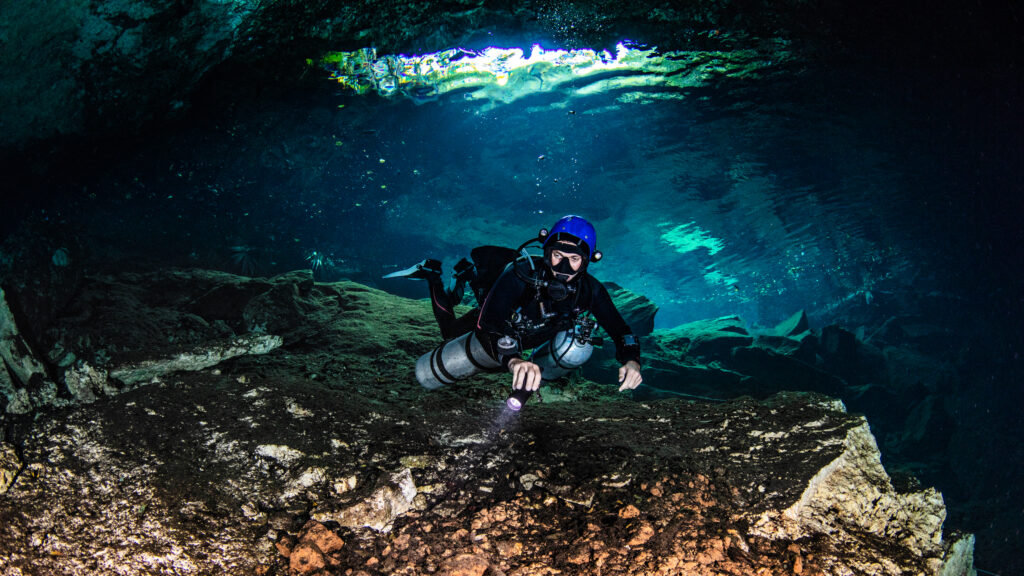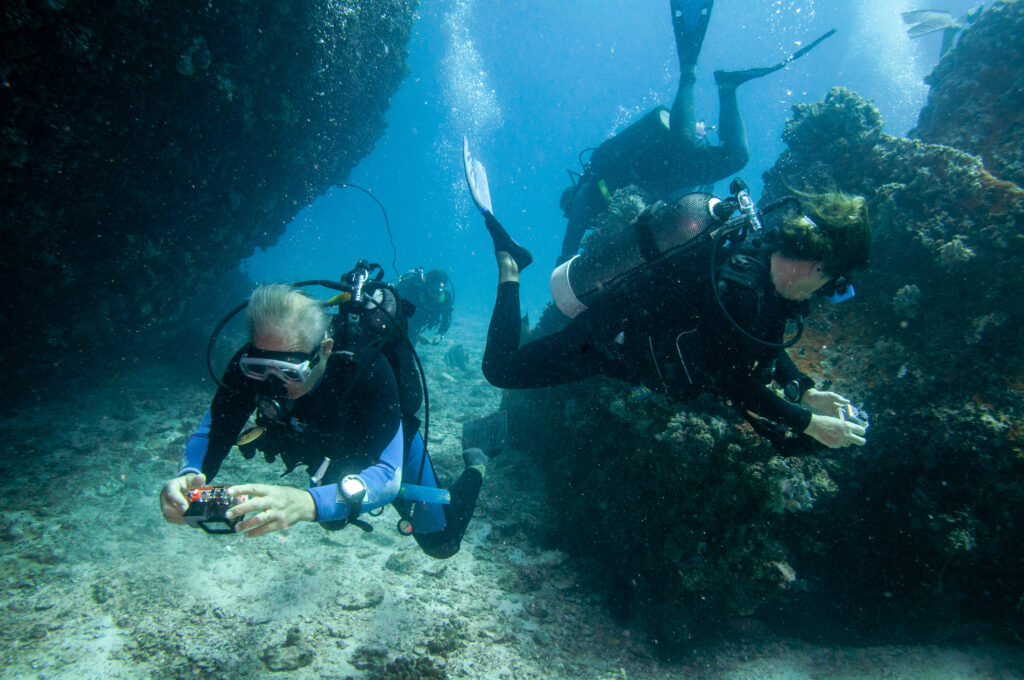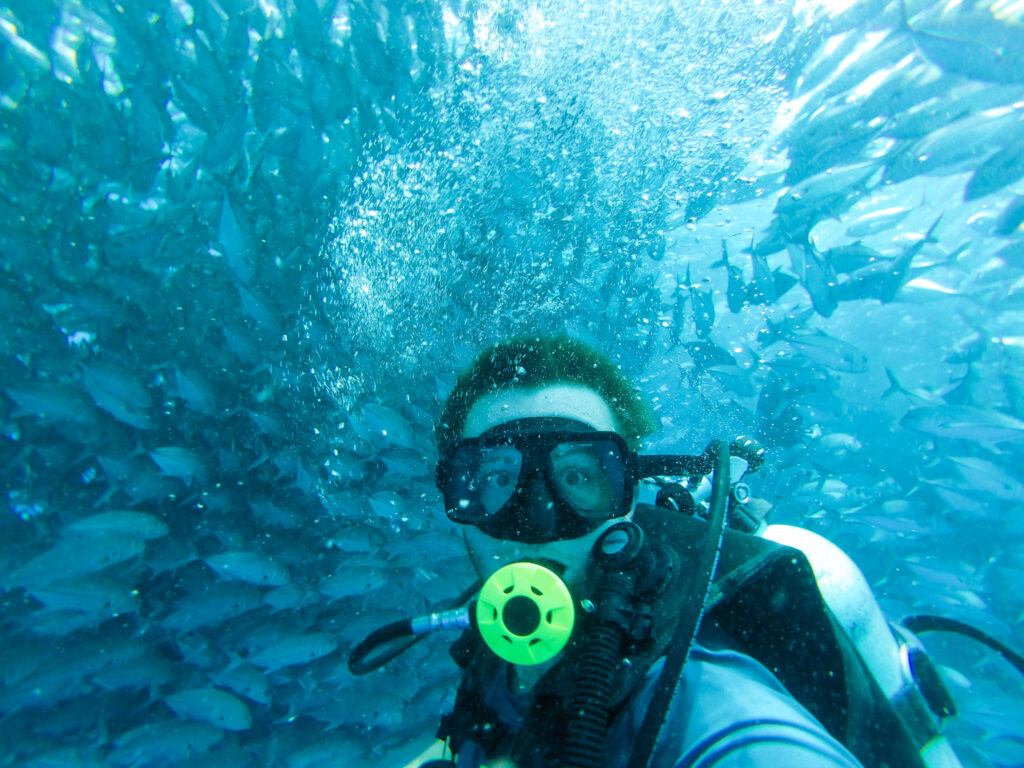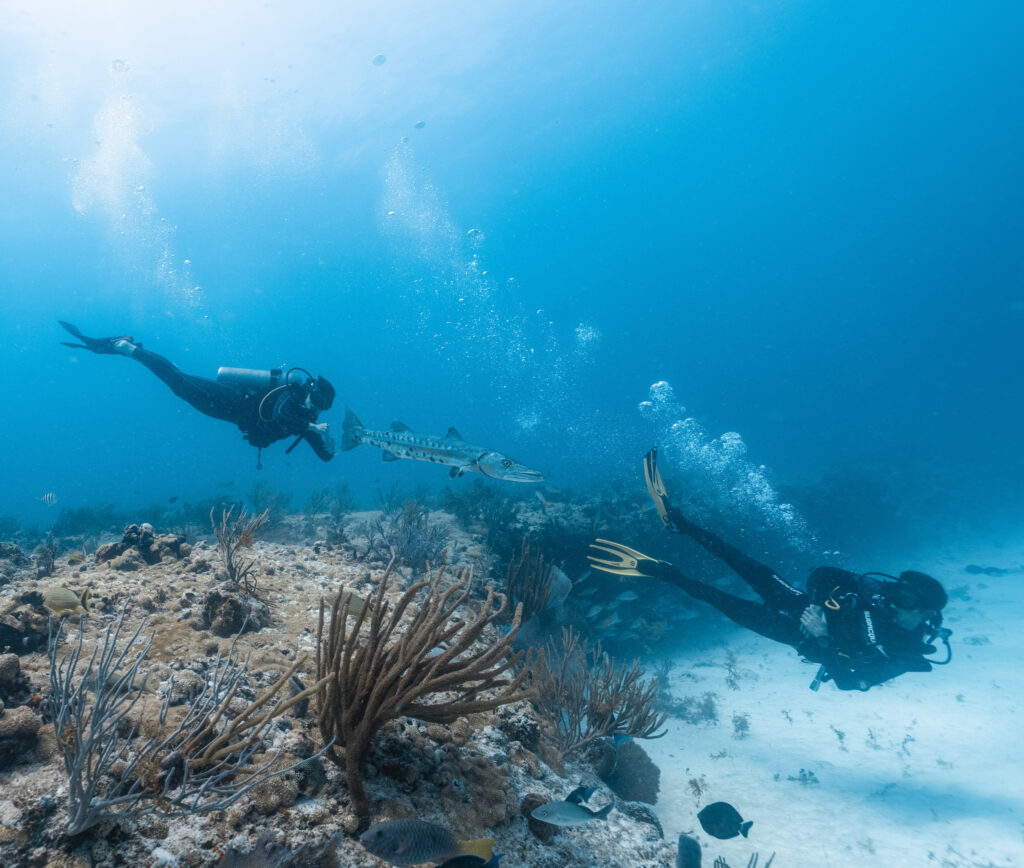What is a Boat Dive?

What is a Boat Dive? A boat dive is a type of scuba diving activity where divers travel by boat to reach a dive site. These sites are often located farther offshore, beyond the range of shore dives, and can encompass a diverse range of underwater environments, from coral reefs and shipwrecks to deep walls […]
What is a Blue Hole?

What is a Blue Hole? A blue hole is a captivating underwater geological feature that intrigues scientists, divers, and marine enthusiasts alike. These large marine caverns or sinkholes are open to the surface and often grant access to submerged cave passages, providing unique environments for marine life to thrive. Blue holes are found in various […]
What is Blind Traverse?

What is Blind Traverse? A blind traverse, a challenging and exhilarating aspect of scuba diving, occurs when a diver navigates through a cave from one entrance to a different, unfamiliar exit. This type of diving requires specialized skills, training, and equipment to ensure the safety and success of the diver. In this entry, we will […]
What is a Balanced Regulator?

What is a Balanced Regulator? A balanced regulator is an essential piece of scuba diving equipment designed to help divers maintain a consistent breathing effort regardless of external conditions, such as depth or tank pressure. This innovative device ensures that the diver receives an optimal and smooth air supply throughout the dive, significantly enhancing their […]
What is Ascent when Diving?

Ascent refers to the upward movement a diver makes as they transition from being submerged underwater to reaching the surface. This process is an essential phase in scuba diving, directly impacting the safety and health of the diver. Ascent is not necessarily a straightforward or continuous journey from depth to the surface; it may require planned pauses, known as decompression stops, to help the body adjust to pressure changes and avoid decompression sickness, a condition commonly called “the bends.” In scuba diving, a controlled and deliberate ascent is crucial to maintaining well-being, preventing injuries, and ensuring a safe return to the surface. This article will explore the importance of ascent, its stages, best practices, and the potential risks divers face during this critical part of the dive.
What is Arterial Gas Embolism (AGE) from Scuba Diving?

What is Arterial Gas Embolism (AGE) from Scuba Diving? Arterial gas embolism (AGE) is a type of decompression illness that occurs in scuba diving, characterized by the formation of gas bubbles in the arterial blood supply. This serious condition can result from trapped air expanding in the lungs, causing ruptures and barotrauma. AGE can have […]
What are Analog Instruments?

What are Analog Instruments? Analog instruments have played a crucial role in the development and practice of scuba diving since its inception. These devices employ a needle that moves around a dial to provide information, such as depth, pressure, time, and direction. As the world becomes increasingly digital, analog instruments continue to maintain their significance […]
What is Ambient Pressure in Scuba Diving?

What is Ambient Pressure in Scuba Diving? Ambient pressure plays a critical role in scuba diving and understanding its effects on the human body is essential for divers’ safety and enjoyment. This entry explores the concept of ambient pressure, its sources, implications for dive planning, and how it influences dive physiology and equipment. Ambient pressure […]
What is Ambient Light when Scuba Diving?

What is Ambient Light when Scuba Diving? Ambient light, the naturally occurring sunlight found underwater, is a key factor for scuba divers, underwater photographers, and marine biologists alike. The unique way light behaves in the underwater realm profoundly affects visibility, colors, and the behavior of marine life. This 1000-word entry will explore the nature of […]
What is Alternobaric Vertigo in Scuba Diving?

What is Alternobaric Vertigo in Scuba Diving? Alternobaric vertigo, commonly experienced by scuba divers, is a form of dizziness induced by unequal pressure changes in the middle ear. Though typically mild and short-lived, it can occasionally persist and cause complications if not properly addressed. This entry will explore the causes, symptoms, prevention, and management strategies […]
